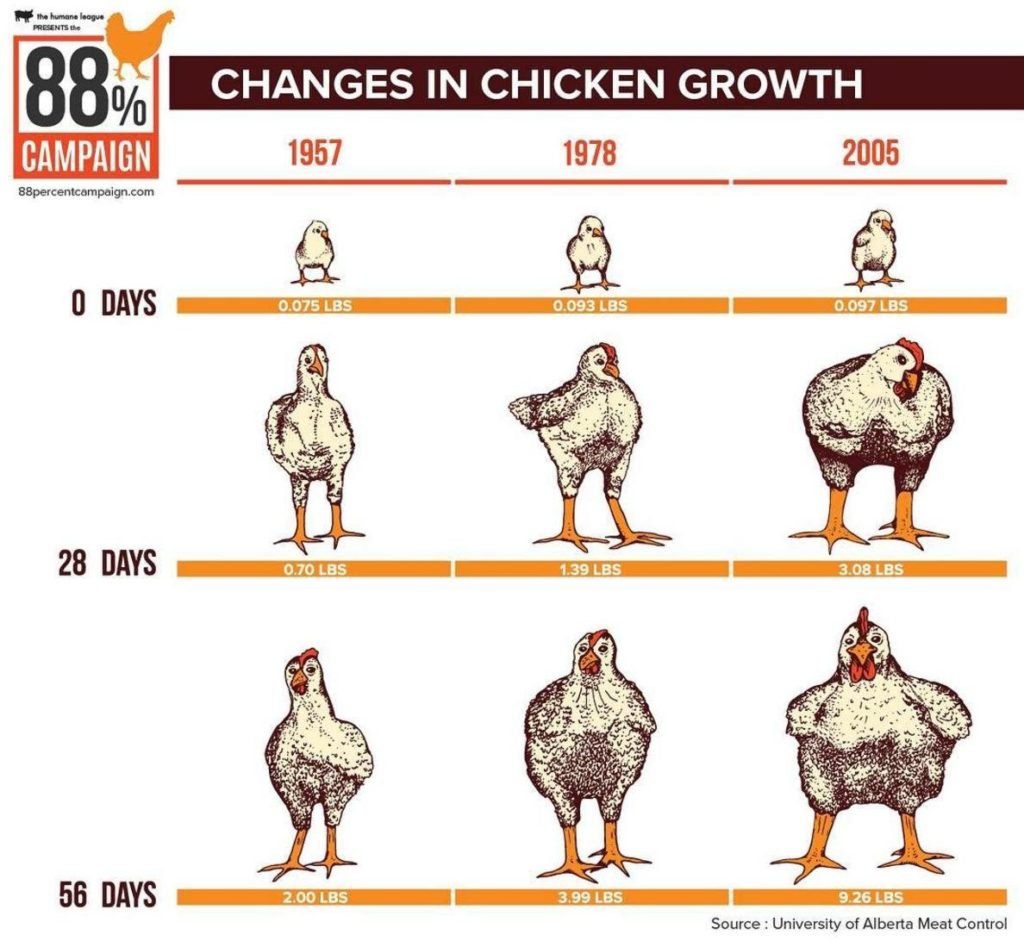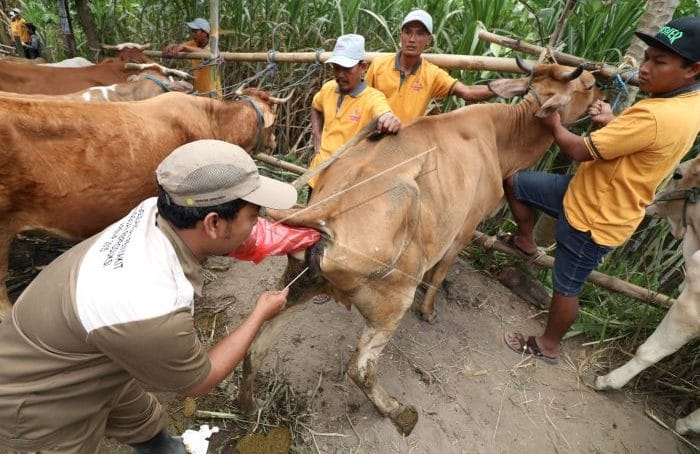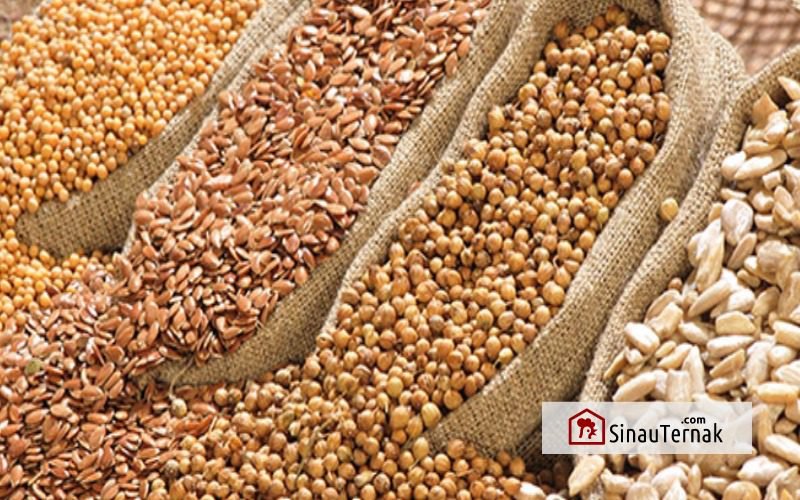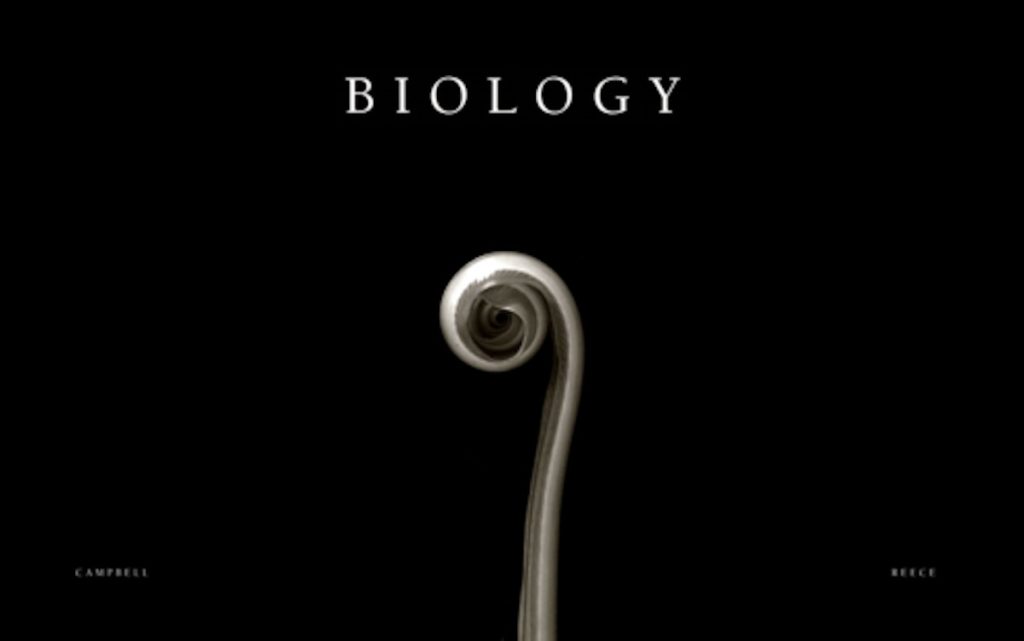Hello Livestock Friends, This time Sinaumedia will share an article entitled 4 benefits of Biology in the Livestock Sector. Let’s see the following article.
What are the benefits of biology in the livestock sector ? Oh, before we discuss that, let’s define what is a Animal husbandry.
Definition of Animal husbandry
Animal husbandry is the activity of breeding and raising livestock to obtain the benefits and results of these activities. Animals that are widely bred include cows, chickens. goats, sheep and pigs. Livestock products include meat, milk, eggs, and clothing (such as wool). In addition, livestock manure when processed into manure can fertilize the soil and animal labor can be used as a means of transportation and to plow the land.
The definition of animal husbandry is not limited to maintenance alone, the difference between maintaining and animal husbandry lies in the goals set. The purpose of animal husbandry is to seek profit by applying management principles to the factors of production that have been optimally combined.
From the brief explanation above we can find out what livestock is. Then what are the activities or activities carried out by farmers on a farm?
- Manufacturing and Feeding
- Environmental condition control
- Cattle breeding or mating
- Livestock Manure Waste Management
- Disease Prevention
- etc
Why do we need to know about livestock activities? so that we can understand at what point biological science can be applied in the livestock sector .
Benefits of Biology in General
Biology is the science that studies all aspects of living things. Starting from the chemical substances that make up life forms to where and how these life forms live. Biology is closely related to other sciences such as chemistry, physics, and even the social sciences.
Biology in the field of science is a basic science so that it can provide understanding and benefits for those who study it. Then, what are the benefits of biology in general for our lives?
- Can understand the characteristics of an organism.
- Can create superior seeds so that food availability can be overcome.
- Can prevent the occurrence of disease or abnormalities in a particular organism.
- Take an active role in solving problems that can interfere with health.
4 Examples of the Benefits of Applying Biology in Animal Husbandry
In the world of animal husbandry, branches of biological sciences such as animal physiology, genetics, reproductive biology, biochemistry are very often used.
1. Genetic Science for Animal Breeding
In the field of animal husbandry, genetics is applied to produce superior livestock breeds. Animal husbandry scientists select superior traits possessed by livestock through a controlled and programmed mating process. The real result that we can enjoy today is the existence of broiler chickens that can be harvested within 35 days.

In ancient times, to get the body weight of harvested chicken weighing 1.5 kg, it took 6 months of maintenance. But now, in just 35 days, the farmers can get the harvest weight of 1.5 kg. It could even be more.
Today we can say thank you to the science of genetics which has succeeded in realizing these superior quality broiler chicks.
2. Embryology and Reproductive Biology for Reproduction
Ever heard of the term injecting marriage? or embryo transfer? nowadays both of these are commonplace on farms. Injecting mating and embryo transfer are examples of the application of embryology and reproductive biology in animal husbandry. By injecting breeding, farmers can save on production costs because the number of males kept is less.

The injection mating technique is a process by inserting the sperm of male farm animals into the womb of female animals. The chance of getting a pregnancy is about 5-25%. This breakthrough was carried out in the field of animal husbandry to be able to improve superior offspring, as well as change the genetics and phenotype of cells in livestock. To get prospective offspring with superior quality, it is necessary to pay attention to such as nutritional feed before and after insemination, the age of the prospective parent, the time of insemination, the reproductive organs of the prospective parent and also a good and correct insemination process.
Both of these techniques are often used for livestock breeding. Semen or semen of superior quality males from a livestock research center can be used to mate with females throughout Indonesia without having to carry the males on trucks to go anywhere.
Once again, let’s say thank you to biology.
3. Physiology
Physiology or physiology (pronounced fa-al) is one of the branches of biology that studies the functioning of living systems. The term “physiology” is borrowed from the Dutch, physiologie, which is formed from two Ancient Greek words: , physis, meaning “origin” or “nature” and , logia, meaning “study”. The term “faal” is taken from Arabic, meaning “sign”, “function”, “work”. Physiology uses a variety of methods to study biomolecules, cells, tissues, organs, organ systems, and organisms as a whole carry out their physical and chemical functions to support life.

By knowing how the living system processes of livestock organisms work, farmers can meet the important needs for optimal livestock growth and development. Farmers can also make decisions to engineer certain environmental conditions to stimulate the desired biological processes to occur in the livestock’s body. for example modifying the temperature or lighting of the cage to increase the productivity and comfort of livestock ( animal welfare ).
4. Biochemistry
Biochemistry is the study of chemical reactions or molecular interactions in living cells. If it is associated with agriculture, especially regarding plants, it means the study of chemical reactions or molecular interactions that occur in plants.
Biochemistry is the science that deals with the various molecules in cells or living organisms as well as their chemical reactions. Biochemists study the molecules and chemical reactions catalyzed by enzymes that take place in all organisms. See the article on molecular biology for diagrams and descriptions of the relationships between biochemistry, molecular biology, and genetics. Biochemistry is the study of the structure and function of cellular components, such as proteins, carbohydrates, lipids, nucleic acids, and other biomolecules.

Biochemistry plays an important role in animal husbandry, because the processes that take place in the maintenance of body functions and livestock productivity are dominated by biochemistry. Animal productivity will be maximum if the digestive process takes place optimally. The new digestive process takes place optimally if the enzymes needed are available in the right types and amounts.
Biochemistry is also the basis of the science of preparing animal feed rations. By understanding the enzymatic reactions that occur in the digestive tract of livestock, it can increase the efficiency of the reaction, for example by giving feed additives in the form of cellulose breaking enzymes to broiler feed that contains relatively high fiber.
The final word…
Those are examples of 4 benefits of Biology in the Livestock Sector. Actually there are many other biological benefits that can be discussed. In the future, this article will continue to be improved by adding more new examples, but for now, only 4 are enough. See you again in the next article and greetings farms !!!


